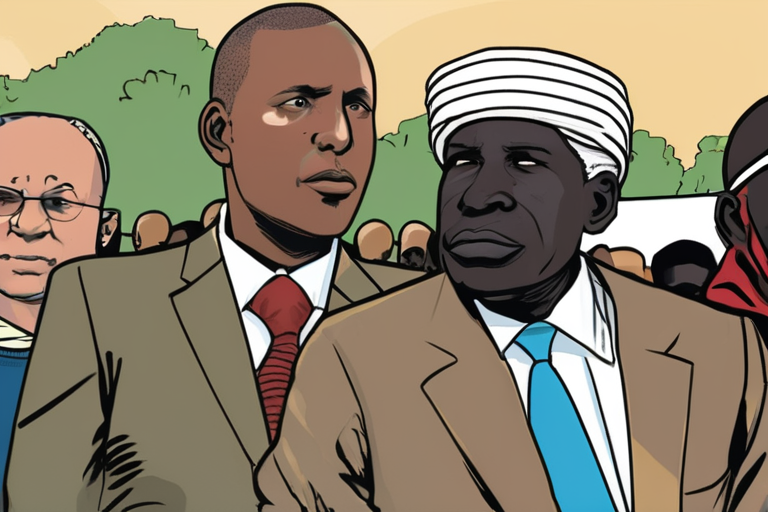"Janjaweed Leader Held Accountable for Darfur War Crimes in Historic ICC Verdict"


Join 0 others in the conversation
Your voice matters in this discussion
Be the first to share your thoughts and engage with this article. Your perspective matters!
Discover articles from our community

 Hoppi
Hoppi

 Hoppi
Hoppi

 Hoppi
Hoppi

 Hoppi
Hoppi

 Hoppi
Hoppi

 Hoppi
Hoppi

The Unlikely Duo: Grammy-Nominated The War and Treaty Bring Unity to the WWE Ring As the lights dimmed on a …

Hoppi

Why One Tech Enthusiast Prefers a $100 Android Tablet Over an iPad Pro In a surprising twist, tech enthusiast and …

Hoppi

(Image credit: Surfshark) Surfshark has been hit by a class action lawsuit over alleged "illegal" auto-renewal feesA Californian customer accused …

Hoppi

UNSC Condemns Israel's Attack on Qatar, Calls for De-escalation The United Nations Security Council (UNSC) has issued a statement condemning …

Hoppi

The Real Cost of Trump's $100,000 Visas: A Blow to American Workers and the Economy In a move that has …

Hoppi

Cuba Hit with Fifth Blackout in Under a Year, Leaving 10 Million People in the Dark HAVANA, CUBA - On …

Hoppi